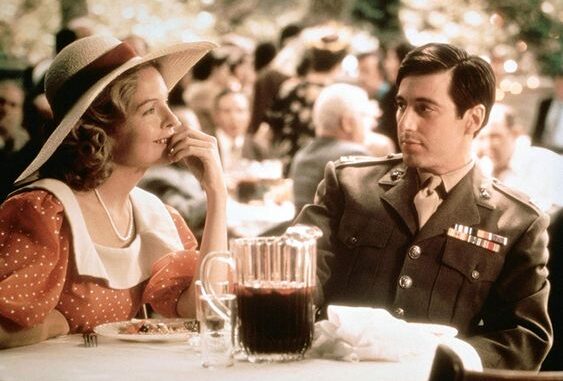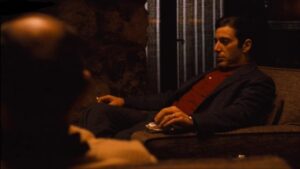
The Godfather Is Really the Story of American Capitalism

The Godfather, which just turned 50 last week, took out all the competition. Budgeted at $6 million, it earned $287 million in theaters. Its worldwide box office was 38.4 times its production costs. It was the first film in history to take in a million bucks a day. Completed ahead of schedule, director Francis Ford Coppola’s family film reflected his Sicilian roots and those of Mario Puzo, the author of the novel. But it wasn’t personal for them, just business.
Prior to 1972, the gangster movie genre traditionally presented a disillusioned underclass in morality plays which sent the same message: “Crime doesn’t pay.” The Godfather says it does. The Corleone Family at the center of the film and novel turn a profit. Puzo’s book charts the rise and fall of the “Mafia,” a word never spoken in the movie, from the vantage point of the most upwardly mobile of New York’s Five Families. It is an immigrant story showing how an insular community helps and hinders itself in the cutthroat world of American assimilation, power, and finance. The film transforms bullets into currency. Coppola was making a larger point about systemic corruption, but critics said he was making excuses for organized crime.
Coppola was accused of glorifying criminal violence, but rightly pointed out that anti-war films similarly cannot be made without portraying bloodshed. The history of crime is the history of society. Warfare and power struggles among criminals run parallel to civil relationships in legitimate society. As becomes apparent in The Godfather Trilogy, which you can now see in 4K Ultra HD, this theme runs through the family’s saga, up to their dealing with the Vatican Church in The Godfather, Part III. Relationships among criminals are the same as political, corporate, institutional, or international. Some leaders are open to negotiation, others administer force.
The Godfather doesn’t romanticize or whitewash organized crime, but shows how it reflects transitional Western society. The film’s crimes are no different than the high crimes and major misdemeanors of American capitalism. Business conquests are littered with collateral damage, from the 1928 “Banana Massacre” perpetuated by the United Fruit Company in Colombia, through union busting, to the Big Three automakers conspiring to hide pollution reports from regulators or the public. Not every business rivalry can be won on a race track, like Ferrari vs Lamborghini. Oil spill cleanups are not covered under manifest destiny.
